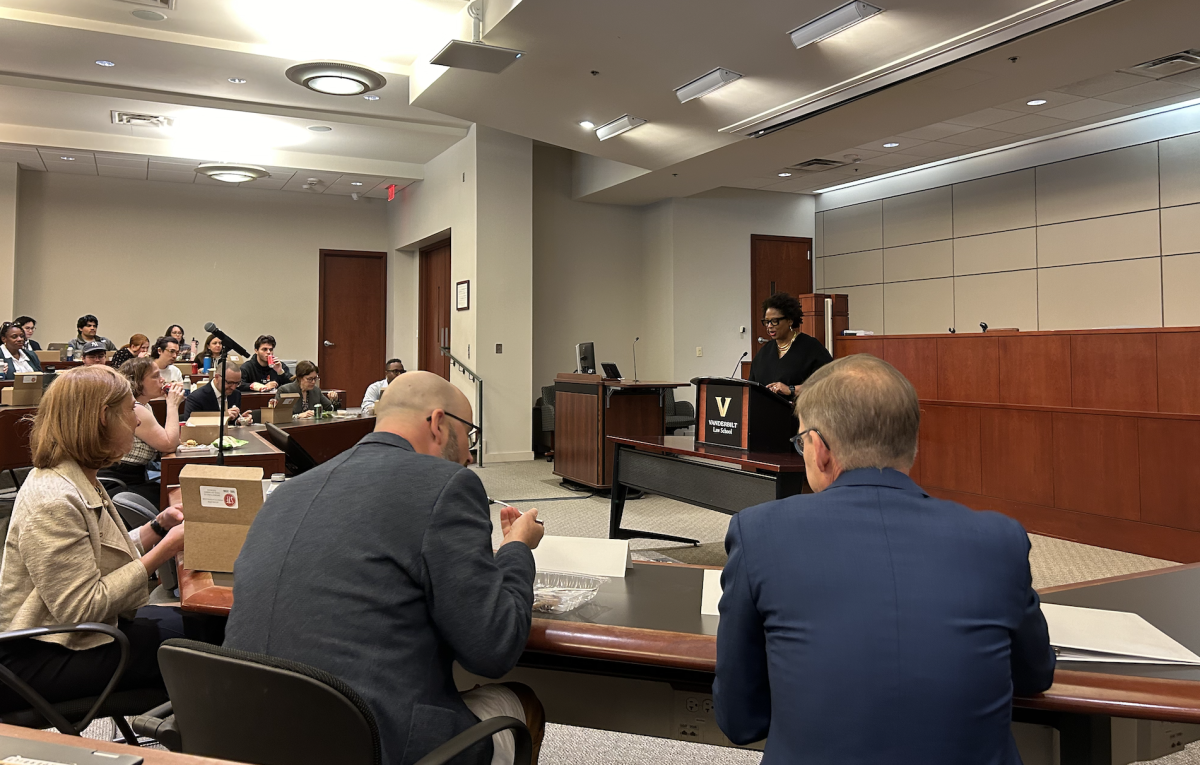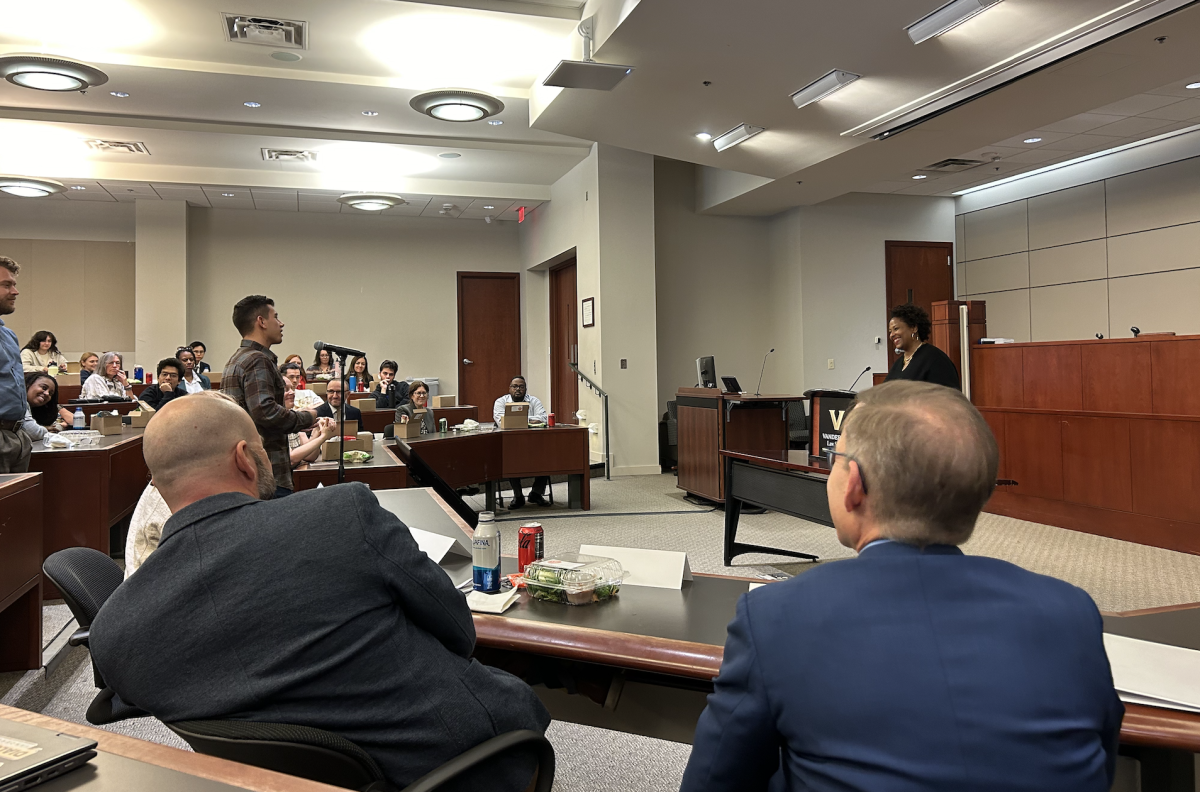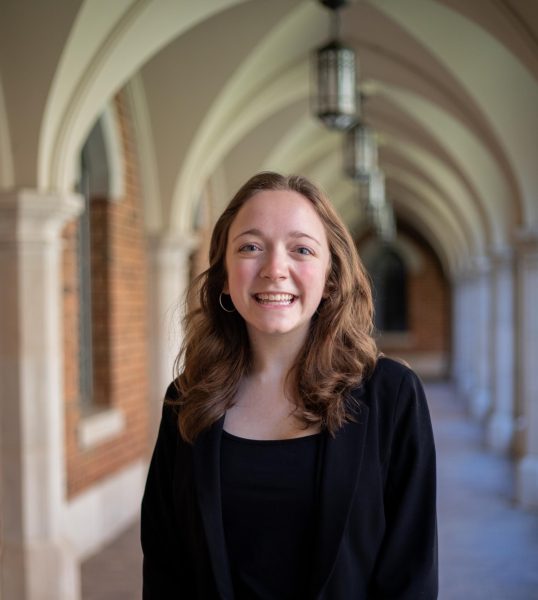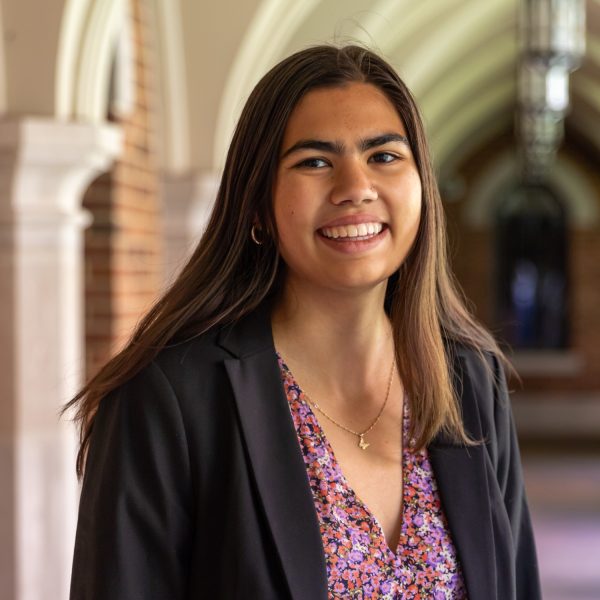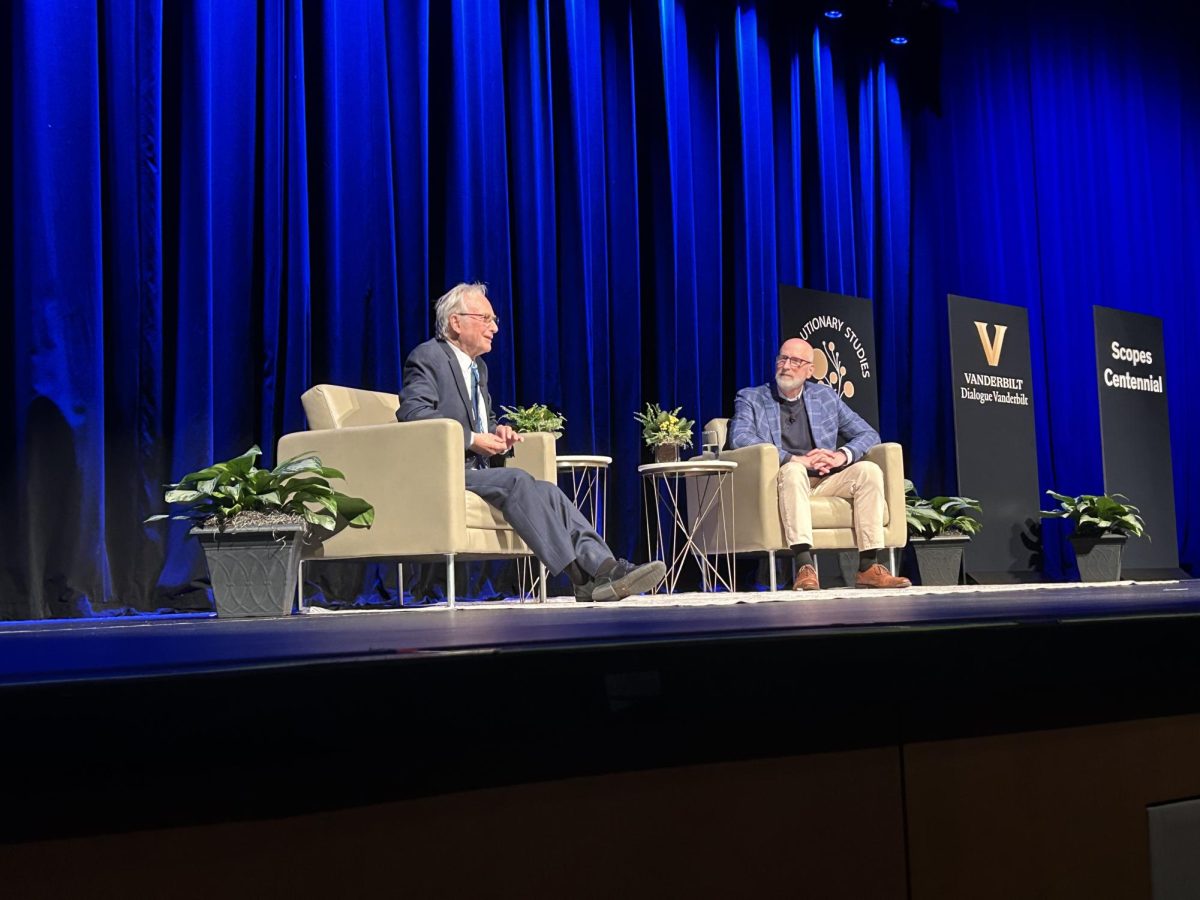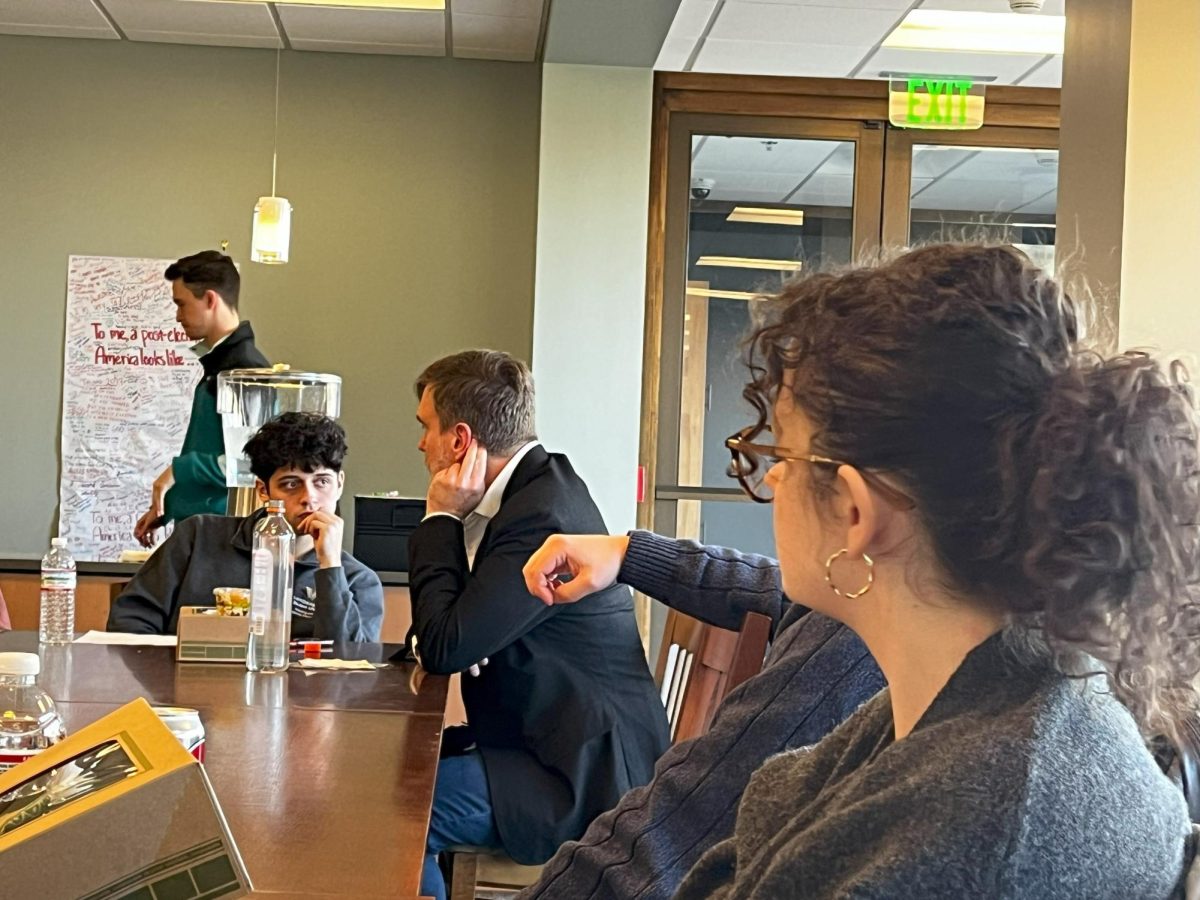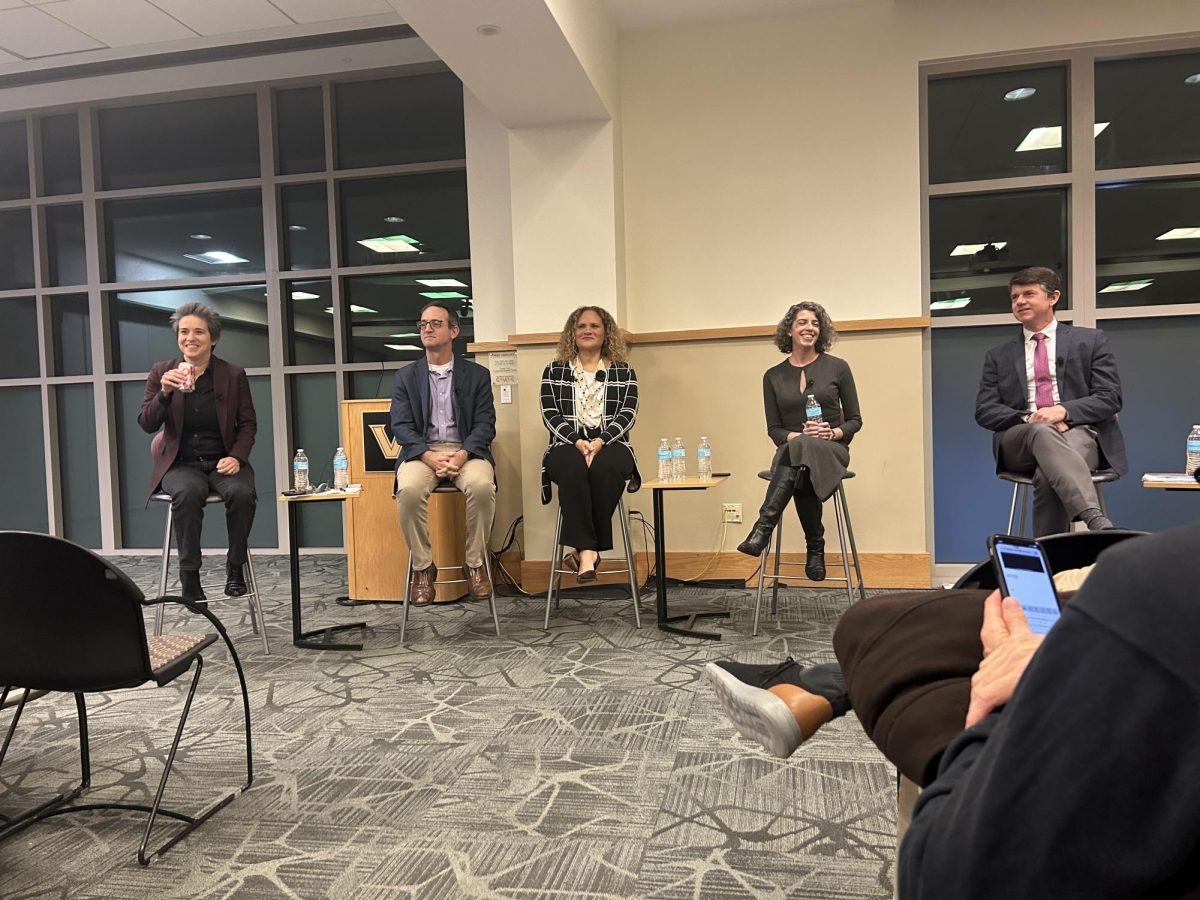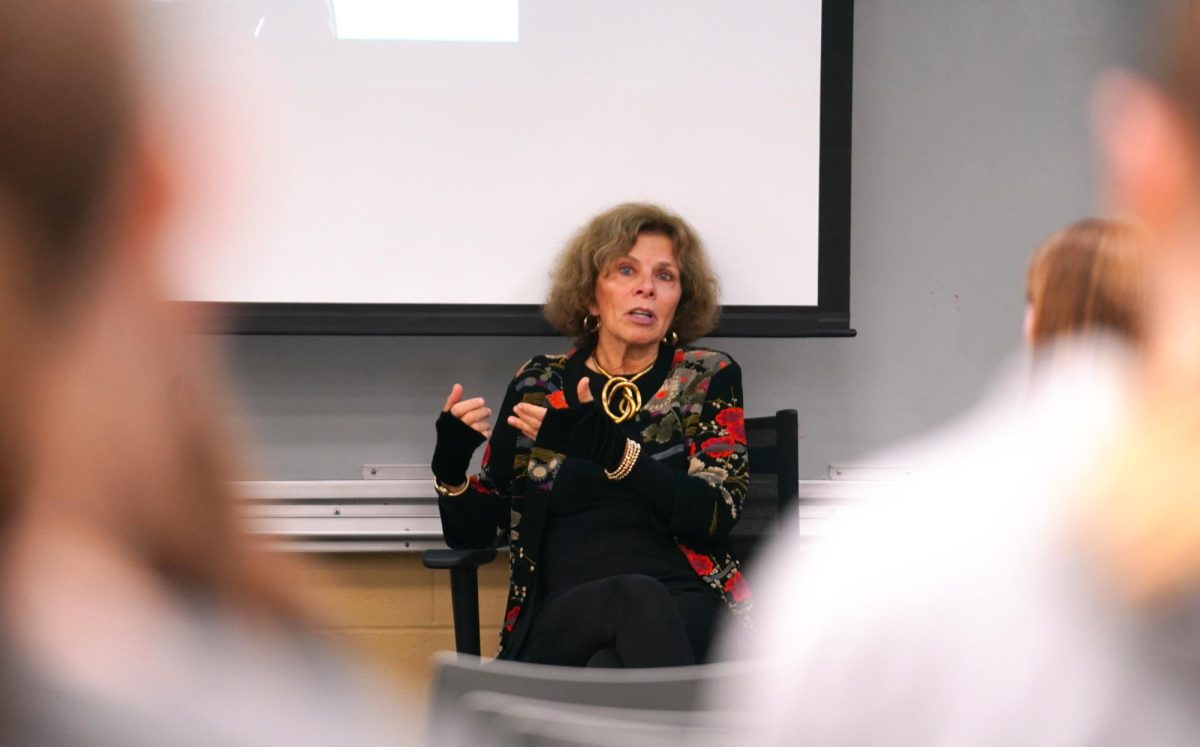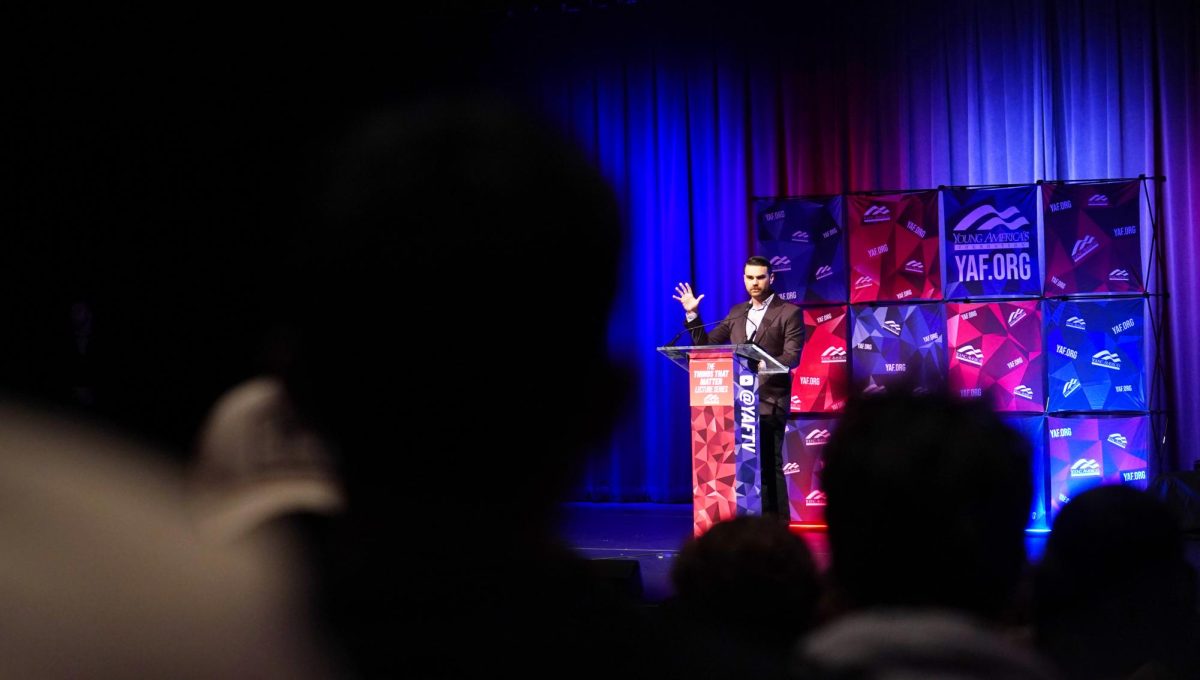Dialogue Vanderbilt hosted Deborah Archer, civil rights lawyer and president of the American Civil Liberties Union, for a discussion of First Amendment rights on Oct. 22 to an audience of over 100 students and faculty. Archer was chosen as the speaker for Vanderbilt Law School’s annual Victor S. Johnson Lecture as a part of this year’s Free Speech Week.
Archer is a clinical law professor at New York University School of Law. After graduating from Yale Law School in 1996, she worked as an attorney for the ACLU and the NAACP Legal Defense and Educational Fund. Elected in 2021, she is the first African American to serve as president of the ACLU. The same year, Archer was awarded the John Hope Franklin Prize, Honorable Mention by the Law and Society Association, for her piece in the Vanderbilt Law Review.
Lecture
Chris Guthrie, dean of Vanderbilt Law School, introduced Archer, calling her “an expert” in civil rights, civil liberties and racial justice. Archer began her lecture by discussing her motivation for pursuing civil rights work, saying she wanted to fight for people who resembled herself and her family.
“I spent a good part of my life feeling like the constitutional protections and freedoms that [the Constitution] espouses didn’t apply to me or my family,” Archer said. “All of the work of the ACLU is critical to bridging the gap between the America that’s promised and the America that is.”
Archer described moments she faced racism growing up and in college that pushed her to pursue a career at the ACLU. She said her friends and family questioned this decision due to the organization’s past work in defending Nazis and members of the Ku Klux Klan.
“I believed in the work of the ACLU then, and I believe in it now because I know that the Constitution’s promises of liberty and equality are linked,” Archer said. “They are really two sides of the same coin. Protecting free speech — including the ability to protest and speak out against those in positions of power — is essential to the fight for equality.”
Archer expressed a commitment to the ACLU’s dedication to protecting First Amendment rights, even when “representing the worst people.” She said she especially sees these freedoms pursued on college campuses, citing examples of student protests in the 1960s against the Vietnam War and in favor of the civil rights movement. She discussed the 1972 Supreme Court decision in Healy v. James, where the court rejected the idea that First Amendment protections should not apply as strongly on college campuses.
“Today we live in a world that, in many ways, harks back to the 1960s and 70s with deep political disagreements, fights over racial justice, unrest in America driven by wars overseas — and the values that inspired the Supreme Court in Healy are equally true today,” Archer said. “It is precisely at these fraught moments when we depend on universities to light the way by living and not just speaking their values.”
Archer went on to further discuss the role of universities in protecting freedoms guaranteed by the First Amendment.
“To be clear, universities have a responsibility to ensure they maintain an environment in which all students can thrive and learn, and they have a legal and moral responsibility to protect all students from harassment, but it’s not their job to protect students from hearing or engaging with upsetting or even hurtful ideas,” Archer said. “The leaders of tomorrow need to be comfortable with the contestation of facts and the clash of ideas.”
Archer said she believes the right to free speech to be “essential to the fight for racial justice” as this freedom allows one to protest and speak up against injustices. She discussed the impact of protests during the Black Lives Matter movement following the murder of George Floyd in 2020.
“Protest is essential. It’s an important outlet for the rage that injustice inspires,” Archer said.
Archer continued that she believes her work is partly motivated by feelings of pain and anger, calling this passion “the fuel of change.”
“Harnessing our rage into peaceful protests has always been a potent force to drive overdue reform and transformation of discriminatory policies and institutions,” Archer said. “We have to protect our ability, and the ability of every community, to give voice to their rage — to demand that our country be better and do better.”
Archer then promoted the right to vote and its role in preserving American democracy. She shared examples of the ways in which this right has been limited, saying she believes the government should be doing more to make it easier for all people to vote. Archer said systemic barriers present in the American electoral process have discouraged participation among people of marginalized communities.
“That is how democracies die — when people believe that they don’t have any political power, and worse when they may, in fact, be right,” Archer said. “The most vulnerable communities are being targeted on multiple fronts, with attacks on their right to vote leading to attacks on their privacy, safety, bodily autonomy and on their First Amendment rights.”
Archer closed her lecture by sharing issues with limitations on the freedom of speech that she has seen in responses from lawmakers, citing examples of book bans, restrictions on conversations about critical race theory and attacks on DEI efforts. She then closed her lecture by emphasizing the importance of First Amendment freedoms, labeling the right to protest, speak, assemble and fight for justice as the “lifeblood of our democracy.”
Q&A session
After her lecture, Archer opened the floor for attendees to ask questions. One question posed to Archer inquired about how to encourage people disenchanted by the political process that their voices do have the power to make change. Archer responded by first acknowledging the validity of feeling disenchanted with voting due to racial gerrymandering, heavy focus on swing states, and depictions of the federal government constantly in strife.
She emphasized consistent engagement with the democratic process and honing on how everyday people can involve themselves in local policy so that government impact feels tangible. Archer specifically mentioned her work in transportation justice and how local legislation guides highway construction through communities of color.
“I think after the pandemic, more people should recognize how important local government is,” Archer said. “Local government helped fill the gaps where the federal government was not there during COVID. Local government is providing housing and resources to folks. It’s the local government that’s enacting a lot of these DEI and critical race theory bans.”
A law student asked about what kind of restrictions are appropriate for speech, particularly in relation to social media platforms. Archer mentioned the struggle of balancing the rights of association for private corporations versus the privacy of people while also discussing the new questions and algorithms that AI brings.
“We cannot allow this conversation to happen without interjecting some of these concerns about civil rights and civil liberties because AI is not evolving in a civil liberty-free space,” Archer said. “The laws that provide protection for us in other spaces apply in the context of AI.”
Archer finished by answering a question about how to engage already disengaged populations. She described that a lot of spaces may feel exclusive to some and that everyone has different contexts and histories when initiating conversations about change with others.
“We’ve learned over some time that it is not solely about the work we do, but who does that work and how we do it,” Archer said. “It’s important to bring in people who have been excluded from these spaces to join us in this work, to really value their input and their conversation.”
Student reactions
Sophomore Yotam Peer, a Dialogue Vanderbilt fellow, expressed interest in Archer’s experience.
“It was a great event and super cool seeing the topic of free speech through a legal lens,” Peer said. “[It was] also fascinating seeing the intersection of her interest in private transportation and free speech.”
First-year Tristin O’Leary attended the lecture and was the only undergraduate to ask Archer a question at the end. He spoke to Archer’s power and expertise in a field that he said he is interested in.
“Free speech has always been an important topic to me, and it’s nice to listen to someone who is such a staunch defender of it,” O’Leary said.
O’Leary also mentioned how he appreciated Archer’s stress on the role of local politics.
“It’s really interesting that she mentioned local politics because I’m from Delaware — a really small state — so her emphasis on the power of local politics made me feel closer to home,” O’Leary said.

